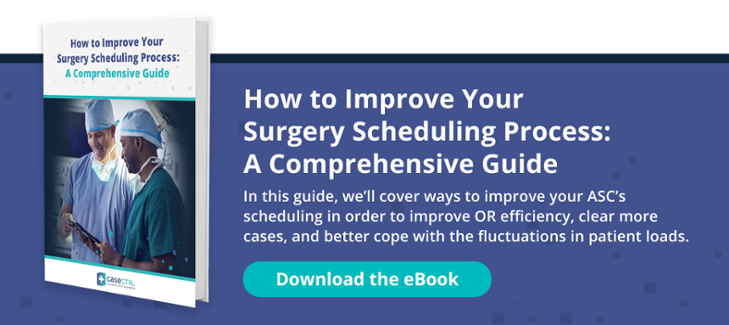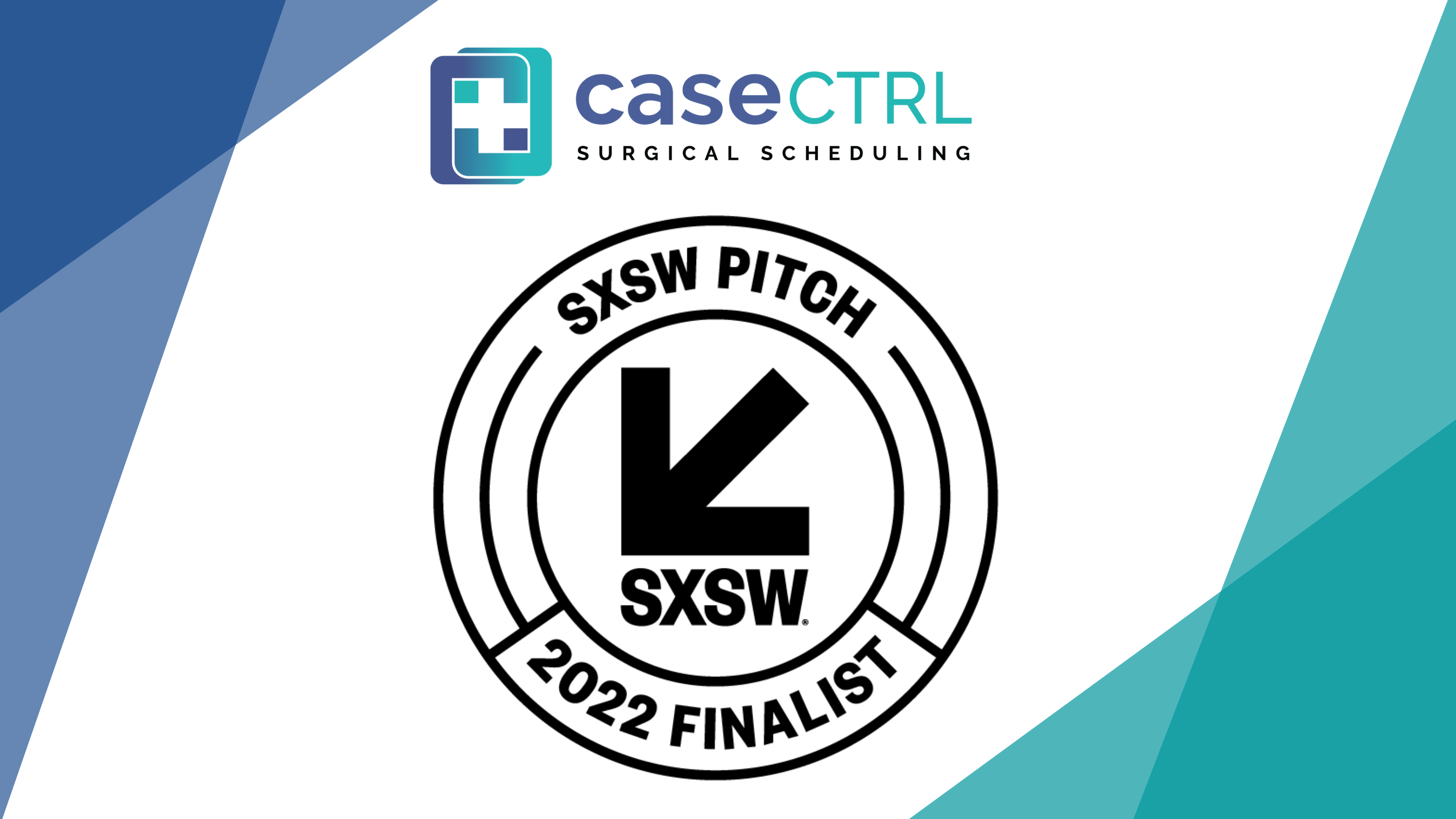Do you know what the biggest threat to operating room efficiency is? It probably comes as no surprise to learn that squandered time from outdated or inaccurate surgery scheduling processes tops the list.
Your practice likely coordinates multiple surgery types with a small support staff. Together, you are entering hundreds of data points per patient, juggling many stakeholders, and managing inevitable reschedules and cancellations, all under increased scrutiny for patient satisfaction and outcomes from payers. There are many opportunities for things to slip through the cracks.
If surgical management is not effective, it can lead to larger issues including:
- Stressed surgeons due to over/under booked blocks, progressively later start times throughout the day, and miscommunication with patients
- Stressed staff from working overtime or feeling blamed for a surgeon schedule that goes awry
- Disgruntled patients because of long wait times and inaccurate procedure information or billing
The good news is that software tools are available to help your staff find and correct inefficiencies. But first it’s wise to understand more about the underlying surgery scheduling problems so you can effectively evaluate how software solutions address them. Here are six common areas where scheduling gets derailed and how you can take back control.
1. Surgery Scheduling Entry Inaccuracy
Are the scheduled procedures matching what happens in the operating room? You would think so, but not always. If your ASC or hospital uses codes to classify surgeries, there may be codes that are consistently misused. This error can lead to inaccurate billing, time variations, and poorly coordinated days where the most similar surgeries should have been grouped together. The problem could be that schedulers have to glean which procedure is necessary by conversations, handwritten notes, or clumsy manual-entry procedures.
2. Inadequate Procedural Descriptions
If the correct codes are used and the actual surgery times seem unpredictable (for instance, if 4-hour surgeries are taking 8 hours), it’s time to look at the descriptions and how well they are matching the realities in the OR. Is there a standardized way to make a surgery entry more specific – i.e., anesthesia plan, recovery instructions, etc.? Tighter procedural descriptions and details mean less work for the surgeon to recite or enter data and less work for the scheduler to decode notes.
Considering that an OR costs around $1,000 an hour unused, it’s worth looking at the taxonomy used to produce surgeon schedules. These gaps will otherwise add up, and it may be neither the surgeon nor the scheduler’s fault, although both will feel the impact.
3. Surgery Time Estimates
Is your ASC or hospital monitoring the difference between time estimates and outcomes? Often surgeons provide estimates for surgery time in their own way. Whatever the means, schedulers need to be able to enter the room-in to room-out based on the other factors in the particular surgery: According to Ye, Macario, and Kadry in an OR Manager article, START makes a good case for greater scheduling accuracy, “Surgeons often underestimate total case duration, without incorporating needed time for patient induction, positioning, preparation, patient emergence, room cleanup, and subsequent room setup.” Certainly, there are other efficiencies to address, but the first step is to understand the baseline for current surgery time estimates.
4. All Cross-trained and No Specialized Staff
Whether you are performing plastic surgery, gastrointestinal procedures, or orthopedic surgery, your ASC or hospital likely has a cross-trained staff of nurses and assistants; after all, ASCs can save payers thousands per procedure by doing less with more. But, strategic specialization on complex or unique procedures can pay off in efficiency. According to a 2018 article published on Kellogg Insight “a particular surgical technician may not be as familiar with a given surgery and thus hinder surgical efficiency compared to a seasoned technician who is experienced in the same type of surgery.” Know which assistants work most effectively on which procedures to shave time off difficult-to-monitor details such as room preparation or draping. Look for ways to have specialized assistants where it makes the biggest difference. Surgeons can be invaluable resources in this effort. If you have a staff that is cross-trained, identify which staff members are most effective in a given surgery and give them more time in those places on the schedule.
5. Communication Confusion
Are patients receiving (and understanding) the right messages about their procedure, being given adequate preparation, and follow ups to make sure they will show up on time? Furthermore, are they clear on what they will pay? Chronically inadequate communication will show up in the surgeon schedule. It is well documented in medical literature since the 1960s that patient communication positively affects patient recall, patient understanding, and patient adherence to therapy. Here are some guidelines to prioritize for effective patient communication:
- Keep it simple
- Be specific
- Use some repetition
- Minimize jargon
- Check patient understanding
One way to confirm understanding is to use automated channels to communicate standard messages to the patient before and after seeing the surgeon. Some software subscription services can help schedulers maintain contact with patients throughout the process. Good patient communication not only instills patient confidence in the process, but helps schedulers manage patient expectations, efficiently reschedule when necessary, and prevent financial surprises for patients.
6. Drowning in Paperwork
The average physician spends over 15 hours per week on paperwork, according to Medscape’s 2020 Physician’s Compensation Report. There cannot be an emphasis on authentic communication and efficiency if physicians or schedulers are performing rote and redundant data exchange and entry. More time on paperwork equals more errors. These are avoidable errors, considering that over 90% of patients’ surgeries are formulaic. Fortunately, software programs allow data to be consolidated and to the extent possible and for forms to be auto-filled with predictable entries.
These are the are common ways that scheduling falls short, even if you are following good surgery scheduling guidelines. The responsibility does not belong in one person’s hands, rather in the process of scheduling itself. Improve these areas with automated solutions, and your bottom line will improve—so will patient satisfaction, reputation among referring physicians, and staff retention. Case CTRL software can ameliorate all of these issues, helping take the distractions out of scheduling, so that the focus stays on successful surgeries and satisfied patients.







































